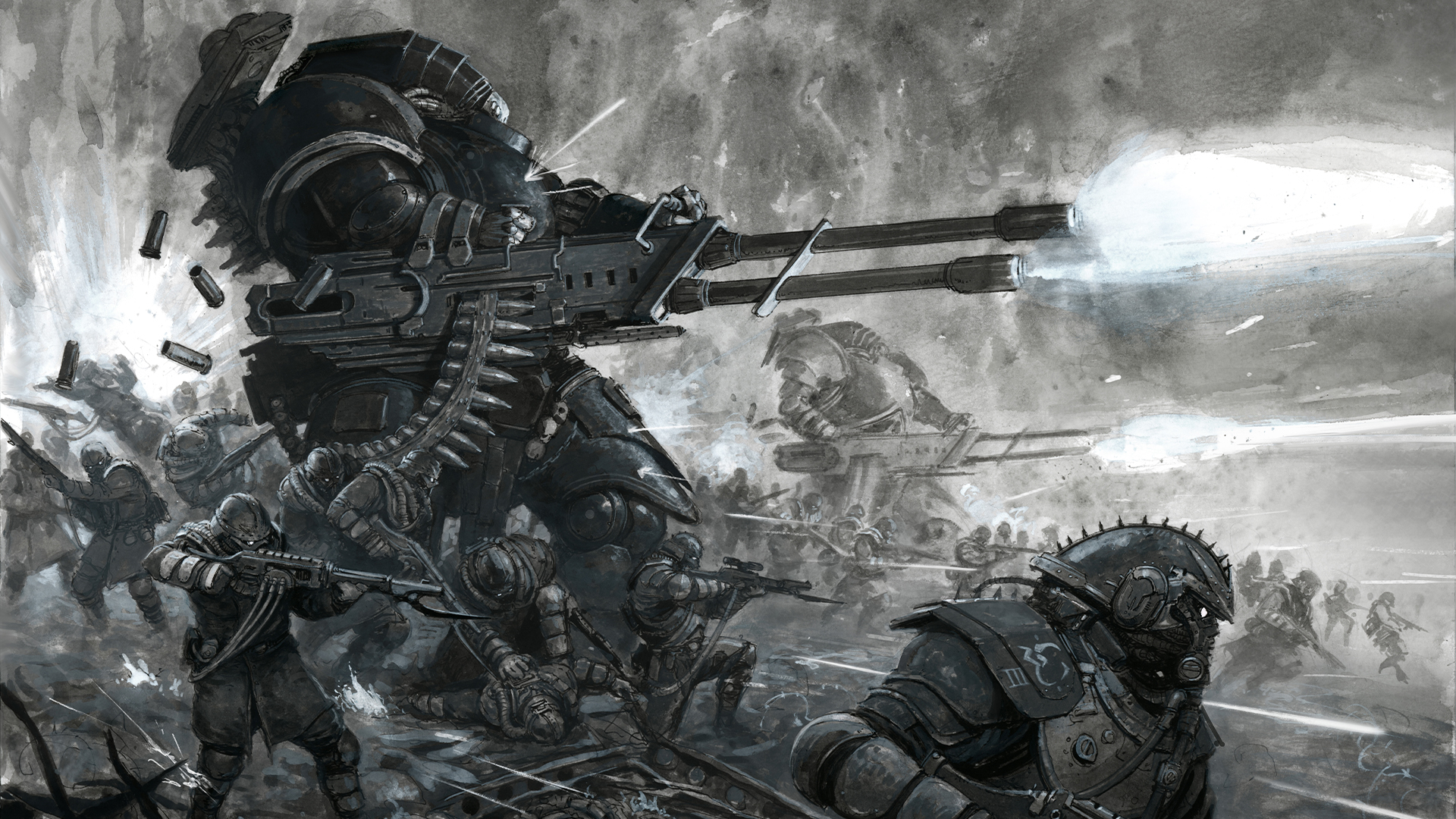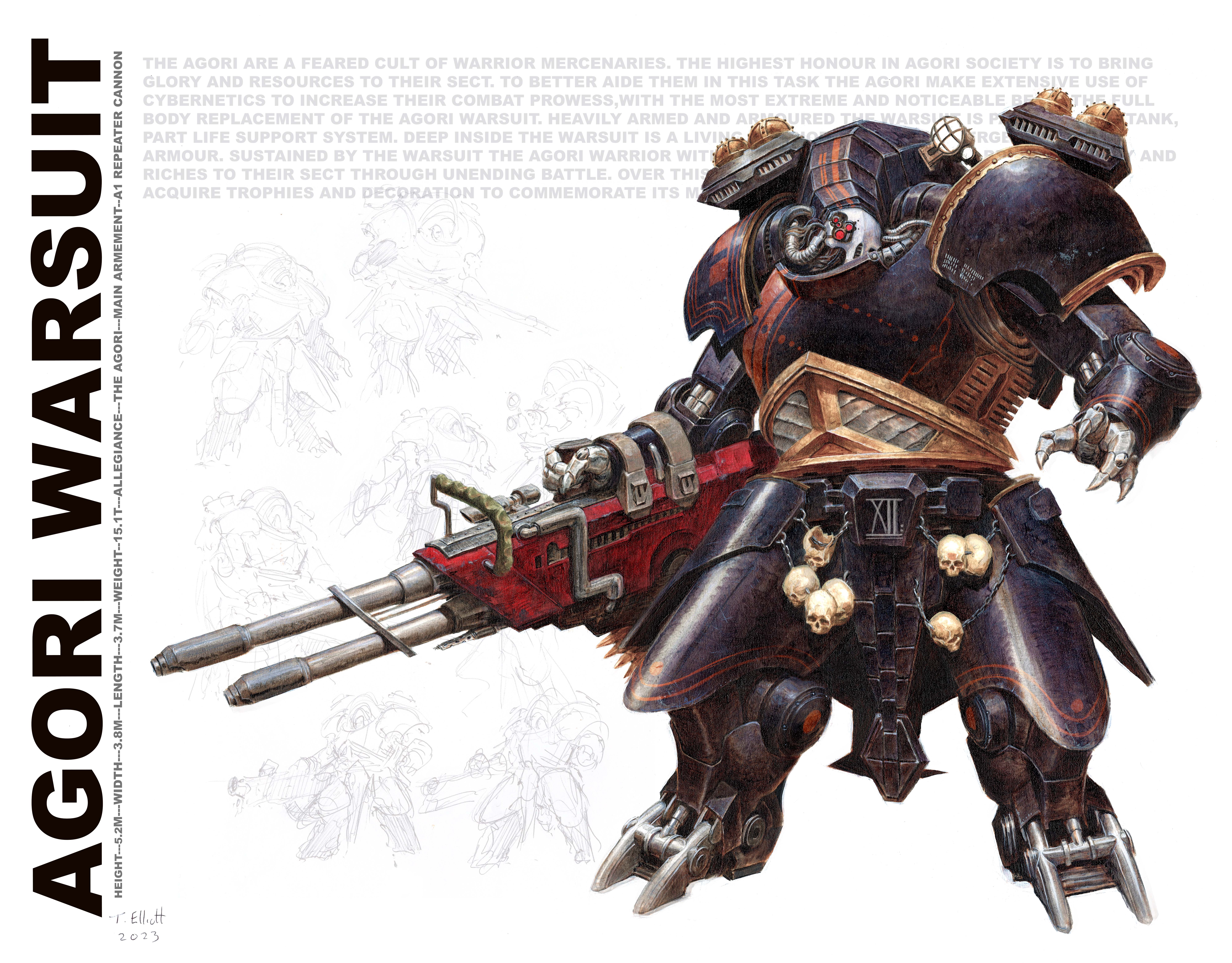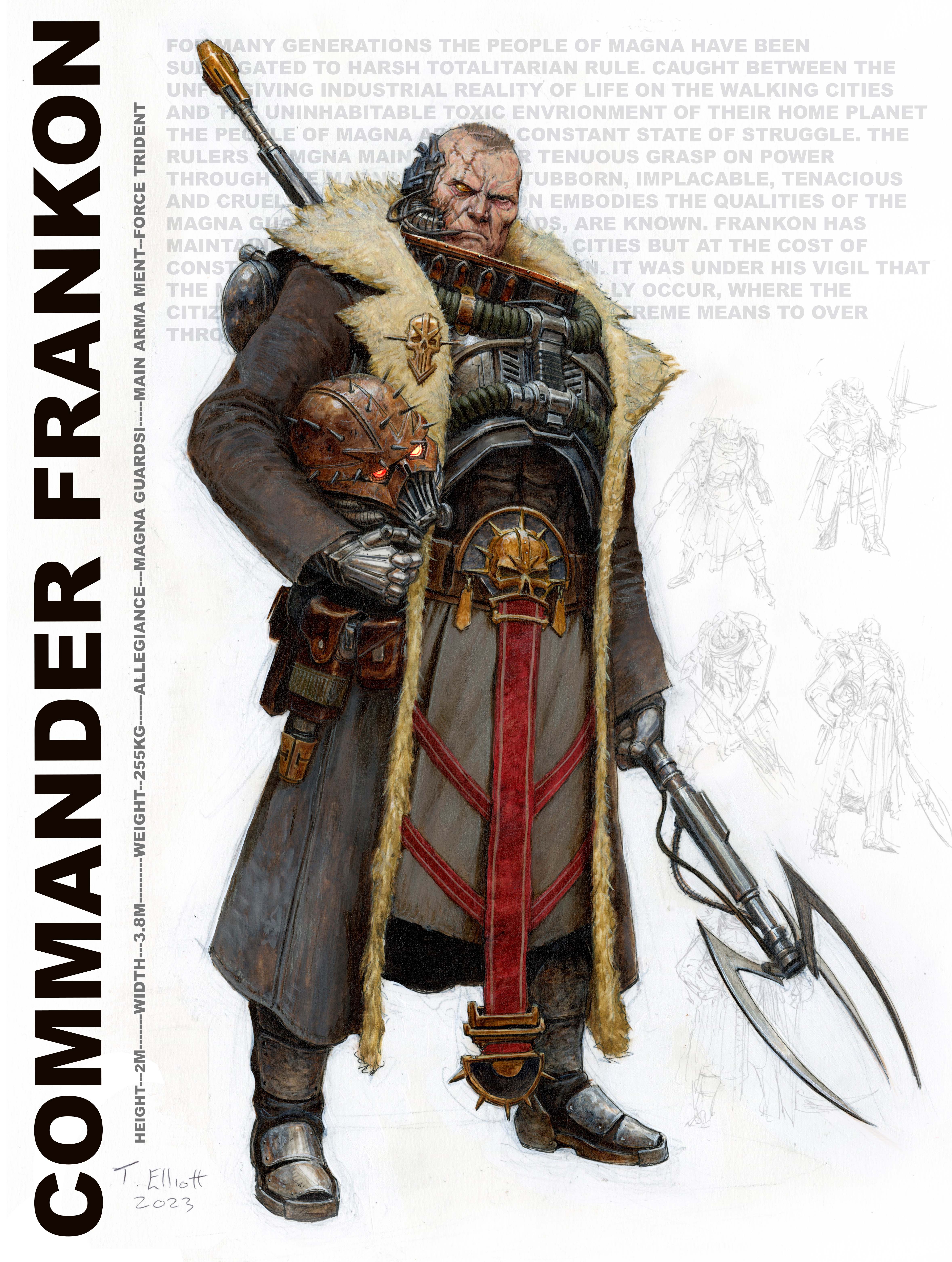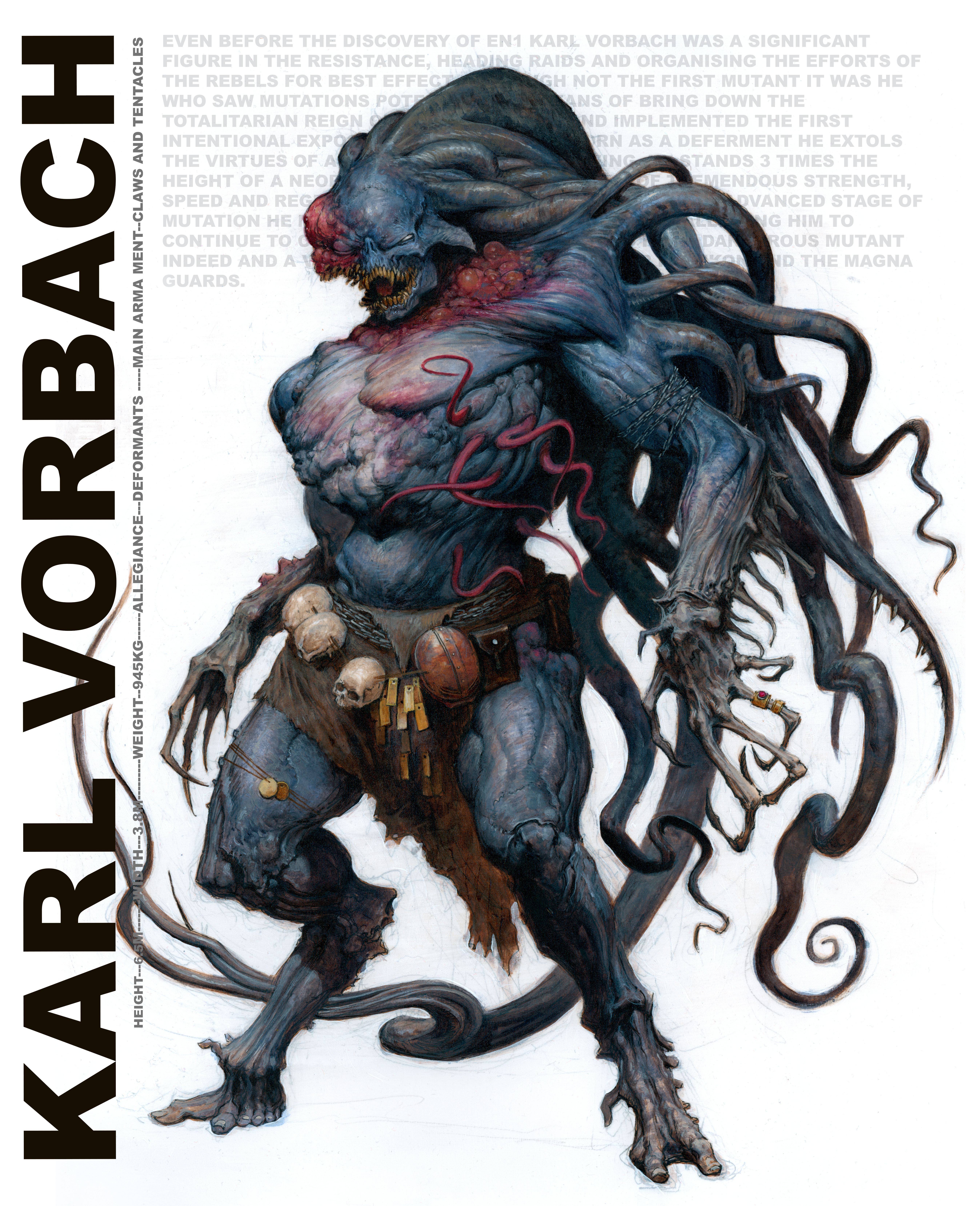
Breaking into the industry can be a tricky time in any young artist's career – once you've honed your skills, there's no official guide to success. As part of our 'Kickstart your art career' series, I sat down with sci-fi and fantasy artist Thomas Elliott to find out how he got his big break.
Beginning his career as a Warhammer artist for Games Workshop, Thomas forged an impressive portfolio, eventually migrating to become art director at Arch Villain Games. Currently working as a freelance illustrator, his artwork has a Lovecraftian influence, combining his fine art painting skills with an immersive imagination.
If you're just getting started in the art world, check out our guides to the best drawing tablets and best laptops for drawing to keep your kit up to date. For some handy tips, take a look at our Procreate tutorials to help hone your skills.

What inspired you to become an artist?
I grew up on a steady diet of classic sci-fi films. I loved the original Star Wars films – Flash Gordon was a huge influence. I just really loved the world-building and the imagination, so it primed me for a career in sci-fi.
From there, I went on to discover Warhammer at the age of 11 or so – art is a huge part of the Warhammer franchise. You have all these fictional armies and fictional races and they're all beautifully illustrated in these books. At about the age of 12, I thought "All I want to do when I grow up is work for Games Workshop."
How did you turn that childhood passion into a career?
I was very inspired by the arts, but the funny thing was, I studied the wrong degree. Rather than studying illustration – or something a bit more appropriate – I ended up studying fine art. When picking my higher education choices as a 19-year-old, I didn't differentiate between the disciplines. If it had art in the name, it was the same.
I spent four years doing fine art, but I was doing art about sci-fi for people who didn't care about sci-fi art. After graduating, I decided that I'd rather make sci-fi art for the people who wanted to consume it, so I spent about six years retraining myself.
I'd picked up some technical skills at art school. I'm able to do life drawing and I've got great observational skills. But drawing from my head and more complex picture construction – which is necessary for the sort of art that Warhammer needs – I didn't have those skills. So I spent a couple of years consuming any media that would help, like online videos and tutorials, each focusing on a different thing to help retrain myself.
Do you think your fine art degree helped with your career?
Absolutely. My art school was quite classical so they valued technical skills. Even though it wasn't strictly what I would have been doing if I wanted to make a beeline for this kind of career, it all overlaps. There's never a time when being able to draw anatomy isn't relevant. I was picking up transferable skills where I could.
I think there are a lot of people who are in a rush to leave university and go straight to their dream job. There's no shame in taking a few years out to develop your portfolio and deepen your skills. Looking back on it, I did rush. I was picking up a lot of freelance work that I hated, for clients that I hated, just because I felt like it was what I should be doing.

What's the best piece of advice you've received during your career?
There's no substitute for hard work. It doesn't matter if you're a concept artist or an illustrator, whatever, putting in the man hours, and being the best artist you can be is the way forward.
If there's a room with 100 people in it, and you've got the best portfolio, you will get the work. Making sure you're that one person is the most important thing. Draw every day, even if it's just half an hour, just to make sure the skills are warm in your mind.
How do you get over a creative block?
I like to take a step back, slow down, and remove expectations for myself. There's nothing worse when you're having a creative block to be telling yourself that you should be doing something. It's okay to take a few days off.
When you do feel ready to come back to it, I find doing small things that you're capable of is best. It doesn't have to be your best piece, it's about making sure that you've got the pencil in your hand and you're slowly going up through the gears again. Another thing is trying out new mediums. If you feel like you're a bit stuck or a bit fed up, change it up a bit.

What's one piece of advice that you'd give to someone looking to break into the industry?
It takes time. You look at all of the big names and suspiciously they're all over 40. It takes a lifetime to get to where you want to go, and everybody has to start somewhere.
No one is born with the skills that they die with. Even the most amazing artists that you look up to had a time when they were feeling frustrated and unable to draw properly – keeping sight of that is very important. It's about admiration, not comparison.
If you'd like to see more of Thomas' art. Check out his ArtStation or follow him on Instagram.







